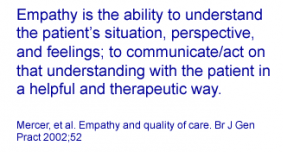December 1st, 2011 by John Mandrola, M.D. in Health Tips, Research
1 Comment »

There was important news this month on statin drugs. As one of the world’s most effective and commonly used medications, statins provide great writing topics. Lots of people have high cholesterol–including cyclists. Lots of people are interested in avoiding our mostly deadly disease.
I’d like to tell you about a recently-published (Lancet) landmark study that should quell safety concerns over statin drugs.

The punch line after I tell you the study’s results are short and sweet. Scroll down if you wish. But first, statin drugs are misunderstood enough to warrant a little blog-like simplicity. Let’s start with some background.
A brief statin review:
Statin drugs are best known for their cholesterol-lowering properties. The notion is simple: Read more »
*This blog post was originally published at Dr John M*
March 16th, 2011 by StevenWilkinsMPH in Opinion, Research
3 Comments »

 Is anyone else tired of hearing about how important empathy is in the doctor-patient relationship? Every other day it seems a new study is talking about the therapeutic value of empathy. Enough already!
Is anyone else tired of hearing about how important empathy is in the doctor-patient relationship? Every other day it seems a new study is talking about the therapeutic value of empathy. Enough already!
It’s not that I don’t believe that empathy is important — I do. I also believe the data that links physician empathy with improved patient outcomes, increased satisfaction, and better patient experiences.
A recent study released in Academic Medicine reported that “patients of physicians with high empathy scores were significantly more likely to have good control over their blood sugar as well as cholesterol, while the inverse was true for patients of physicians with low scores.”
Findings from this study by Hojat, et al. are consistent with a 2009 study by Rakel, et al. which found that among patients with the common cold, those with physicians displaying high empathy had a significantly shorter duration of illness and trend toward lesser severity of illness and higher levels of immune response compared to those patients whose physician displayed less empathy. Read more »
*This blog post was originally published at Mind The Gap*
January 13th, 2011 by Glenn Laffel, M.D., Ph.D. in Research
1 Comment »

 Emerging economies must act immediately to halt rising obesity rates before the epidemic becomes as severe as it is in first-world countries, according to new report by the Organization for Economic Cooperation and Development (OECD).
Emerging economies must act immediately to halt rising obesity rates before the epidemic becomes as severe as it is in first-world countries, according to new report by the Organization for Economic Cooperation and Development (OECD).
The OECD report was published in the Lancet. It characterizes the prevalence of obesity in Brazil, China, India, Mexico, Russia and South Africa. Obesity rates were found to vary dramatically across these six countries. In Mexico, a stunning 70 percent of adults were reported to be overweight or obese. Nearly half of all Brazilians, Russians and South Africans fell into these categories. China and India had a lower prevalence of overweight and obesity, but were moving rapidly in the wrong direction, according to the OECD.
Developing nations don’t have enough resources to handle the health consequences of obesity, which include an increased risk of cardiac disease, stroke, cancer, diabetes, arthritis, and disability from all causes.
Read more »
*This blog post was originally published at Pizaazz*
May 10th, 2010 by Richard Cooper, M.D. in Better Health Network, Health Policy, Opinion, Research
1 Comment »

Group Health has published two papers recently, one in Health Affairs and the other in JAMA, both extolling the virtues of its Medical Home. These follow their brief report last fall in the NEJM and the lengthy description of their model in the American Journal of Managed Care. Their model has been promoted by the Commonwealth Fund, and it is cited in the currrent issue of Lancet.
The big news is that costs were a full 2% lower than conventional care, hardly a great success –- it wasn’t even statistically significant. But was even this small difference due to the Medical Home, or was it because the Medical Home patients were less likely to consume care? Read more »
*This blog post was originally published at PHYSICIANS and HEALTH CARE REFORM Commentaries and Controversies*

















